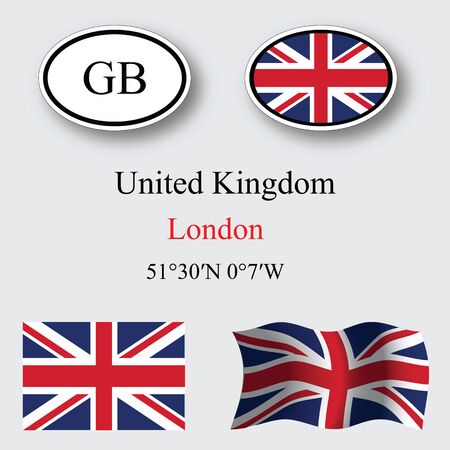Understanding Feng Shui: Core Principles and Relevance
To appreciate how traditional Feng Shui can seamlessly blend with British spring cleaning customs, it is essential to first understand its foundational concepts. Rooted in ancient Chinese philosophy, Feng Shui is a practice centred on harmonising individuals with their surrounding environment. At its core, Feng Shui is about the strategic arrangement of spaces to optimise the flow of energy—known as “Qi”—for improved wellbeing, prosperity, and balance. The principles include the mindful placement of furniture, the thoughtful use of natural elements, and the deliberate avoidance of clutter. While these ideas originated centuries ago, their emphasis on balance and intentional living continues to resonate in modern homes across the world. In contemporary Britain, where urban lifestyles often lead to compact living spaces and busy routines, integrating Feng Shuis guiding concepts provides a timeless approach to creating more harmonious and uplifting homes. By exploring these principles in relation to local customs like spring cleaning, we discover practical ways to refresh our environments while cultivating a sense of clarity and renewed energy.
Spring Cleaning in the UK: History and Customs
To understand how to successfully blend traditional Feng Shui principles with British spring cleaning customs, it is essential to first appreciate the historical roots and unique characteristics of spring cleaning in the United Kingdom. Spring cleaning is a well-established annual event that typically coincides with the arrival of longer days and milder weather. Historically, this tradition can be traced back to a time before central heating, when homes were heated by coal fires throughout the winter months. As spring approached, households took advantage of improved weather conditions to air out rooms, remove soot and dust, and freshen up living spaces after months of confinement.
Cultural Nuances of British Spring Cleaning
British spring cleaning is not just a functional activity; it carries cultural significance as a symbol of renewal, orderliness, and domestic pride. It often involves all members of the household participating in deep-cleaning tasks. Unlike the ritualistic aspects seen in some cultures, British spring cleaning tends to focus on practicality and efficiency, guided by an ingrained sense of routine and community standards for tidiness.
Key Characteristics and Common Practices
| Characteristic | Description |
|---|---|
| Timing | Typically conducted in March or April as daylight increases |
| Tasks Involved | Washing curtains, beating rugs, scrubbing floors, decluttering cupboards |
| Community Aspect | Neighbours often exchange tips or lend a hand; charity shops benefit from donated items |
| Symbolism | A fresh start for the home and family following winter’s end |
Modern Adaptations
In contemporary Britain, while some traditional practices remain, modern conveniences have streamlined many aspects of spring cleaning. However, the core ethos—embracing change, fostering cleanliness, and renewing one’s environment—continues to resonate deeply. This shared cultural moment provides an ideal context for introducing complementary Feng Shui concepts that similarly value harmony and positive energy within the home.

3. Synergies between Feng Shui and British Spring Cleaning
Both traditional Feng Shui and British spring cleaning customs share a fundamental goal: creating a harmonious, comfortable, and revitalised living environment. While originating from distinct cultural backgrounds, these practices reveal significant natural overlaps that make their integration seamless for modern British households.
Shared Focus on Energy Flow and Space Clearing
At the heart of Feng Shui is the principle of optimising “Qi” or energy flow through thoughtful arrangement and decluttering. Similarly, British spring cleaning places emphasis on clearing out unwanted items, dusting off forgotten corners, and refreshing the home after winter’s stagnation. Both traditions recognise that accumulated clutter can hinder not only physical movement but also mental clarity and overall wellbeing.
Seasonal Renewal as a Core Theme
The timing of British spring cleaning aligns with Feng Shui’s seasonal approach to renewal. In both traditions, spring is seen as a time of new beginnings—a chance to sweep away the old and welcome positive change. This mutual appreciation for seasonal transitions amplifies the psychological benefits of combining these practices: residents feel more energised, motivated, and ready to embrace opportunities.
Cultivating Mindfulness and Intention
Feng Shui encourages mindful intention when organising spaces—every object has its place and purpose. The British tradition of taking stock during spring cleaning—carefully considering what to keep, donate, or discard—echoes this same thoughtful approach. By blending these methods, individuals cultivate a deeper awareness of their surroundings, making home not just tidy but truly nurturing.
In summary, the synergy between Feng Shui principles and British spring cleaning lies in their shared commitment to wellbeing through orderliness, mindful renewal, and respect for both practical needs and subtle energies within the home.
4. Practical Tips for Integrating Feng Shui into Your Spring Cleaning Routine
Successfully blending traditional Feng Shui with British spring cleaning customs requires a thoughtful, step-by-step approach. By integrating both philosophies, you can create a harmonious, energised home that feels fresh and inviting. Below are actionable tips and suggestions to help you weave Feng Shui principles into your annual clean-up, focusing on decluttering, organisation, and enhancing the overall atmosphere.
Declutter with Purpose
Both British spring cleaning and Feng Shui prioritise clearing out unnecessary items to make space for new energy. Begin by addressing each room individually:
- Start Small: Choose one area (e.g., hallway or kitchen counters) to avoid overwhelm.
- Sort Methodically: Use three categories: Keep, Donate, Discard.
- Mindful Decision-Making: In true Feng Shui fashion, ask if each item is useful or brings joy; if not, it may be time to let go.
Organise According to Energy Flow
Once you’ve decluttered, focus on arranging what remains to encourage good chi (energy) flow while respecting practical British habits for orderliness. Consider the following table for guidance:
| Feng Shui Principle | British Custom | Practical Tip |
|---|---|---|
| Avoid clutter near entrances | Shoe racks and coat hooks in the hallway | Keep entryways clear to invite positive energy—use closed storage for shoes and coats |
| Balance elements (wood, fire, earth, metal, water) | Natural materials and light in décor | Add plants or wooden accents; use mirrors to reflect natural light |
| No sharp corners facing seating areas | Sofas and armchairs grouped for conversation | Rearrange furniture so edges do not point directly at seats; soften corners with textiles or plants |
| Cleansing energy with air flow | Opening windows during cleaning | Aerate rooms thoroughly; use this time to smudge with sage or burn essential oils if desired |
Create a Fresh Atmosphere
- Deep Clean Strategically: Dust from high surfaces downwards and sweep towards doors to symbolically “move out” stagnant energy.
- Scent and Sound: Complement traditional British methods like airing out duvets and rugs with Feng Shui suggestions such as playing soft music or chimes during cleaning.
- Add Symbolic Touches: After cleaning, consider placing a bowl of fresh fruit in the kitchen or flowers in the living room to enhance abundance and harmony.
Step-by-Step Integration Guide
- Tidy one space at a time, removing old or broken items first.
- Categorise belongings as per the table above, combining functional storage solutions with mindful placement.
- Cleansing: Open windows wide, wipe surfaces with natural cleaners, then refresh energy by adding greenery or lighting a candle.
- Assess each room’s feel—make small adjustments until the space feels both orderly and uplifting.
Summary of Key Actions
- Purge unnecessary items methodically, honouring both traditions’ emphasis on freshness and renewal.
- Arrange remaining items to support free movement and an inviting environment.
- Add finishing touches that celebrate both British sensibilities and Feng Shui symbolism for lasting comfort and wellbeing.
5. Addressing Common Challenges and Misconceptions
Blending traditional Feng Shui principles with British spring cleaning customs can present several challenges and misunderstandings. It is important to identify these issues early and address them with practical solutions to ensure a harmonious integration of both systems.
Mistaking Aesthetics for Energy Flow
A frequent misconception is that Feng Shui is merely about decorative choices, while British spring cleaning focuses solely on tidiness. In reality, Feng Shui is concerned with the movement and quality of energy (qi) in a space, which goes beyond surface-level cleanliness. To overcome this, consider not just removing physical clutter but also rethinking furniture placement and room usage to promote better flow and balance.
Overlooking Cultural Differences
Some may struggle with the cultural nuances between Eastern philosophy and British traditions. For example, British homes often value sentimental keepsakes, whereas Feng Shui encourages minimising items that no longer serve a purpose. The key here is balance: selectively keep cherished possessions, but position or display them thoughtfully so they contribute positively to the home’s atmosphere.
Confusion Over Rituals and Practicality
Another hurdle arises when rituals are misunderstood as superstitions. While spring cleaning might be seen as a practical task, Feng Shui includes symbolic acts such as opening windows to invite fresh energy. To clarify, these rituals have psychological benefits and can be incorporated subtly—for instance, airing out rooms during cleaning aligns with both traditions.
Navigating Conflicting Advice
Occasionally, the guidance from each system may seem contradictory; for example, minimalism in Feng Shui versus the layered décor often found in British interiors. The solution lies in adaptation rather than strict adherence: integrate elements that resonate personally while respecting the core intent of each tradition—be it enhancing wellbeing or maintaining comfort.
Summary of Solutions
In summary, merging these practices requires openness and flexibility. By clarifying objectives, addressing cultural sensitivities, and focusing on holistic wellbeing rather than rigid rules, you can successfully blend traditional Feng Shui principles with British spring cleaning customs to create an environment that feels both energised and authentically home-grown.
6. Celebrating a Balanced Home: The Benefits of Cultural Blending
Embracing both traditional Feng Shui principles and British spring cleaning customs offers a unique opportunity to enhance your home environment in multiple dimensions. By integrating the mindful placement and energy flow advocated by Feng Shui with the thoroughness and renewal spirit characteristic of British spring cleaning, you can create a living space that is not only physically clean but also energetically harmonious. This cultural blending encourages a holistic approach to wellbeing, supporting both mental clarity and emotional balance.
Feng Shui’s focus on decluttering and purposeful arrangement aligns naturally with the British tradition of deep seasonal cleaning. Together, these practices foster a sense of order, calm, and vitality. Removing unnecessary items, welcoming fresh air, and carefully positioning furniture according to energy principles all contribute to a more inviting and productive atmosphere. Meanwhile, involving household members in the process strengthens family bonds and cultivates shared responsibility for the home’s upkeep.
The benefits extend beyond aesthetics or tidiness. A home refreshed by both traditions can positively influence mood, reduce stress, and improve overall health by minimising dust, allergens, and stagnant energy. This harmonious environment is especially valued during the vibrant British spring, when new beginnings are celebrated and windows are thrown open to let in light and life.
Ultimately, blending these two cultural approaches allows you to honour tradition while adapting it to your personal lifestyle. You gain the practical advantages of cleanliness alongside the deeper rewards of harmony and positive energy flow—hallmarks of both Feng Shui wisdom and British domestic culture. By doing so, you lay the foundation for ongoing comfort, happiness, and wellbeing within your home throughout every season.


